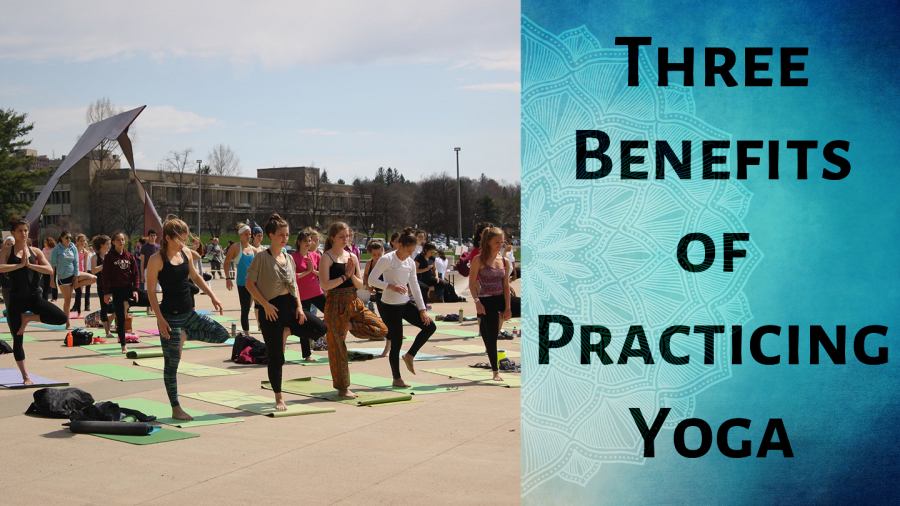Yoga has come a long way. Emerging several thousand years ago in India, it is now practiced all around the world. In the United States alone, 90 percent of people have heard of yoga. Yoga classes are even offered at the Recreation Center at the University of Massachusetts. It is common knowledge that practicing yoga has some physiological and mental benefits, but what do these benefits entail?
Flexibility
Perhaps the most common advantage attributed to practicing yoga is increased flexibility. Unsurprisingly, this is backed up by studies. These two articles published by PubMed support the claim. They state that those who practice yoga two to three hours a week for a number of weeks (the exact numbers varies) were more flexible than those who did not practice yoga. Flexibility also has other benefits, such as reduced chances of injury. A study published in The American Journal of Sports Medicine tested the flexibility of 138 female collegiate athletes and found a correlation between lack of flexibility and injury occurrence.
Body Awareness
Yoga creates body awareness, an essential quality. The exact definition of body awareness varies, but the idea of the concept is centralized around knowing how you feel, physically and mentally. Individuals with higher body awareness would be able to notice that they are getting stressed or falling sick easier than those with lower awareness. One such study was conducted one three groups of people; yoga practitioners, aerobic exercisers and the last not in either of those groups. The study showed that the those who practices yoga had the highest body awareness of any group in the study.
There is another yoga benefit similar to enhanced body awareness and that is body satisfaction, meaning one’s attitude toward their body is favorable. This may explain why a survey administered by the National Center for Complementary and Integrative Health asked yogis found that 94 percent of them practice yoga for “wellness-related reasons,” which includes reduction of stress, increased motivation and assistance eating better. Yoga has even been used as a treatment for eating disorders.
Stress Reduction
There is evidence that practicing yoga can lessen the bane of college students’ existence: stress. For many, a de-stressing outlet is needed to cope with schoolwork, and yoga can be that outlet. Yoga has been shown to reduce stress significantly. The survey mentioned previously conducted by the National Center for Complementary and Integrative Health also reported that 86 percent of yogis said that practicing yoga reduced their stress.
In an article by the Journal of Evidence Based Integrative Medicine, yoga was shown to reduce the symptoms of depression. Yoga may also aid your ability to concentrate due to the inclusion of mediation in many yoga practices. Meditation has been shown to increase concentration in people who practiced it. This effect may be compounded with the finding, published in the Journal of American Osteopathic Association, that group fitness reduced stress considerably.
Since the semester began, I have managed to do yoga at home almost every day. The great thing about practicing at home is being able to create your own schedule. You can practice for as long as you need to, and I’ve always felt better after doing some yoga, no matter how long the practice session is. Personally, I find 20 to 30 minute practices work best for me. I have also tried a yoga class at the Rec Center and had a great experience. I would recommend the class over practicing at home due to the group setting, the longer duration and the completeness of the workout, but the times yoga classes are offered may not fit with your schedule.
I find the unique aspect about yoga is how open it is to your ability. There is a variant of yoga for anyone’s needs, some high intensity, others more meditative. So roll out a mat and start practicing. You will be better for it.
Ben Connolly can be reached at [email protected].



















